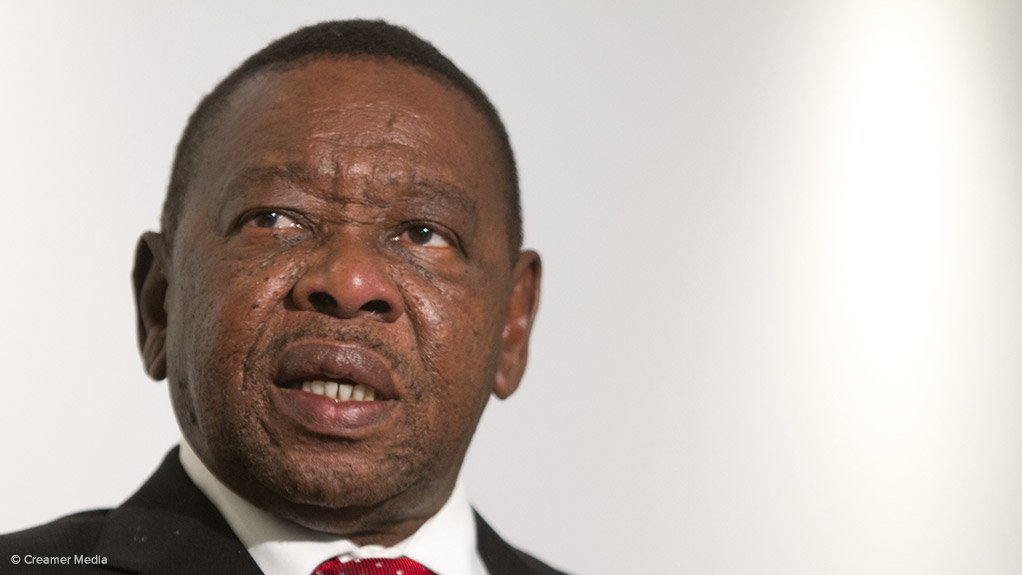Higher Education Minister Blade Nzimande has called for calm amid growing student tensions on several of the country’s university campuses, but has diverted the responsibility for fee structures and yearly enrolment increases to the universities themselves, telling a media briefing in Pretoria that fees were set at an institutional – not a departmental – level.
The Minister’s comments came as student protests against proposed fee increases at the universities of Cape Town, Fort Hare, the Witwatersrand and Rhodes, entered their second week and appeared to be gaining support from larger proportions of the student populace.
“The issue of fees is not a matter for the department, it’s a matter for the various institutions. I’m not the first port of call, as fees are determined independently by the universities themselves. We need to set the record straight here.
“The Department of Higher Education and Training (DHET) recognises that university students, like all members of our society, have a right to protest and voice their opinions and grievances. However, in carrying out this right, it calls on all parties to act with restraint, respect the rights and dignity of others, maintain discipline and protect university and individual property,” he asserted.
Nzimande further appealed to universities to consider cost-containment measures so as to arrest “spiralling inefficiencies” and contain inflation within the higher education system.
Announcing that he would, on Wednesday, meet with representatives of student bodies, university council chairs, workers and a delegation of vice-chancellors to move towards the development of a common framework on the issue of university fee increases in 2016, the Minister nonetheless declined to concur with student descriptions of the fee impasse as a “national crisis”.
“An approach must be developed to come up with a dispensation that takes into account the difficult circumstances facing especially the students who come from poor families, as well as the financial pressures facing the system.
“I urge all stakeholders at institutional levels to try and find each other through negotiations first, and for managements to take a lead in this regard. I also urge students to give space to these negotiations so that these matters could be resolved amicably,” he said.
Nzimande, meanwhile, acknowledged funding shortfalls for poor students, but defended government’s funding support programme, the National Student Financial Aid Scheme (NSFAS), allocations from which had increased from R441-million in 1997 to over R9.5-billion in 2015.
He further revealed that a recent Ministerial working group model into the feasibility of free tertiary-level education for 25% of students had put the cost at an unaffordable R37-billion over the three-year medium-term expenditure period.
“While funding has increased considerably, it is clearly still insufficient to support all poor and academically deserving students . . . and processes for improving the disbursement of funds and concerted efforts to root out fraud, as well as sourcing additional funding to support students are currently being implemented.
“We shouldn’t, however, detract from the fact that NSFAS has done wonders and contributed significantly to the growth of the black middle-class in this country,” he held.
According to the DHET, government allocated institutions of higher learning some R30-billion a year, with R21-bilion of this allocated as university subsidies and the remainder split between NSFAS and other tertiary-level university grants.
This amounted to 12% of government’s total education budget and 0.72% of country’s gross domestic product.
The Minister, meanwhile, appealed to students and universities to resolve the fee crisis and return to scheduled classes prior to the advancing final exams.
“We really hope that the exams won’t be affected. Whatever the issue, let's find a way to solve the issue; we can’t afford such a high failure rate . . . we must protect the exams,” he noted.
Nzimande’s comments came a day after the conclusion of the Higher Education Summit, which resolved to explore the possibility of developing regulatory frameworks in the area of fee increments and saw a common commitment by all stakeholders to work towards an increase in the allocation of government funding to universities, as well as more expanded student funding models.
EMAIL THIS ARTICLE SAVE THIS ARTICLE
To subscribe email subscriptions@creamermedia.co.za or click here
To advertise email advertising@creamermedia.co.za or click here











